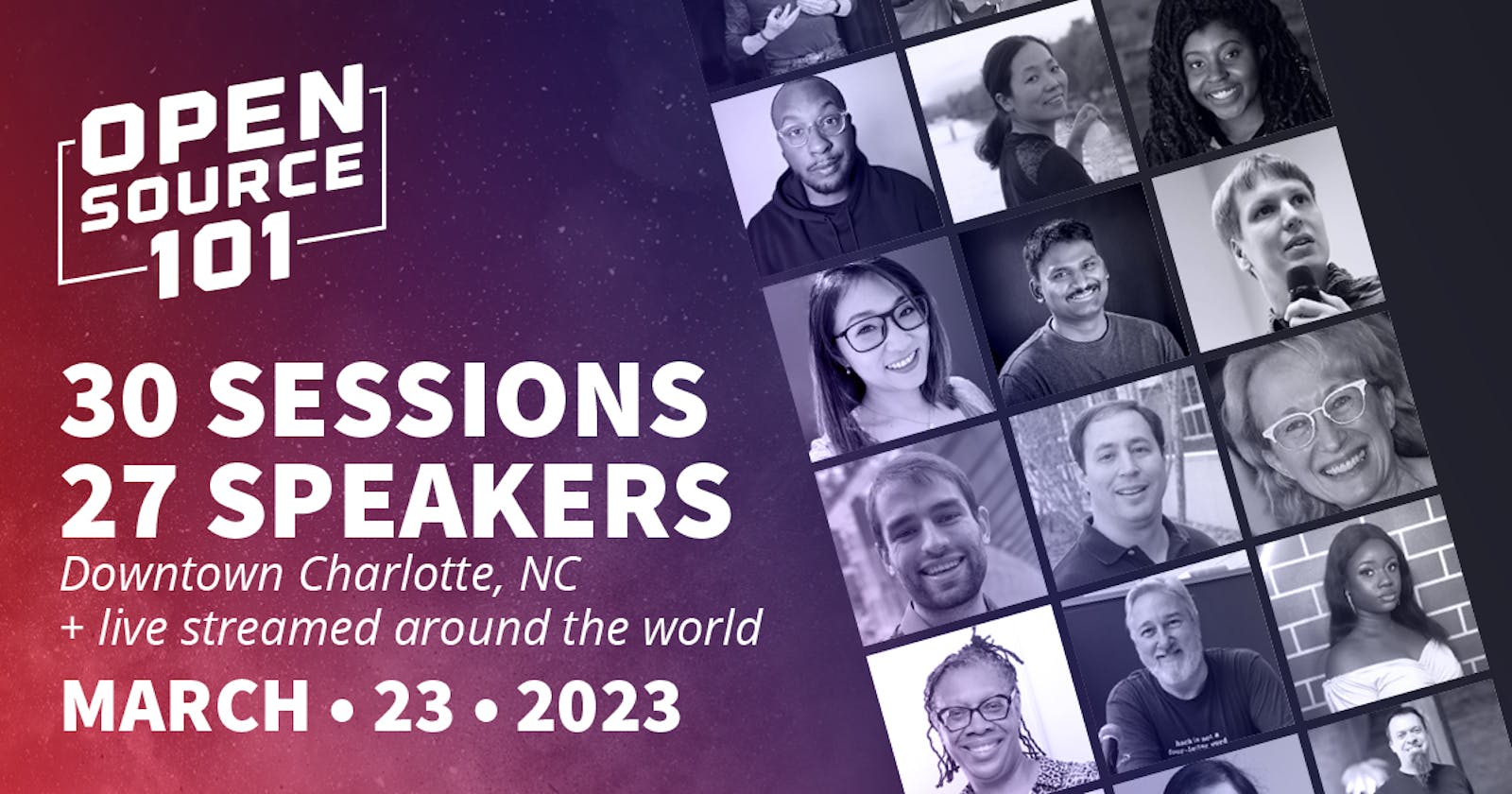Hi there! My name is Rishi Vamshi Athinarap (Linkedin), and I am a Master's in computer science student at UNC Charlotte with a passion for Backend Development and DevOps. I believe in the power of learning in public, so I have decided to document my journey and share my learnings with the world through this blog. Please join me on this journey of continuous learning and discovery, and let's build a brighter future together!
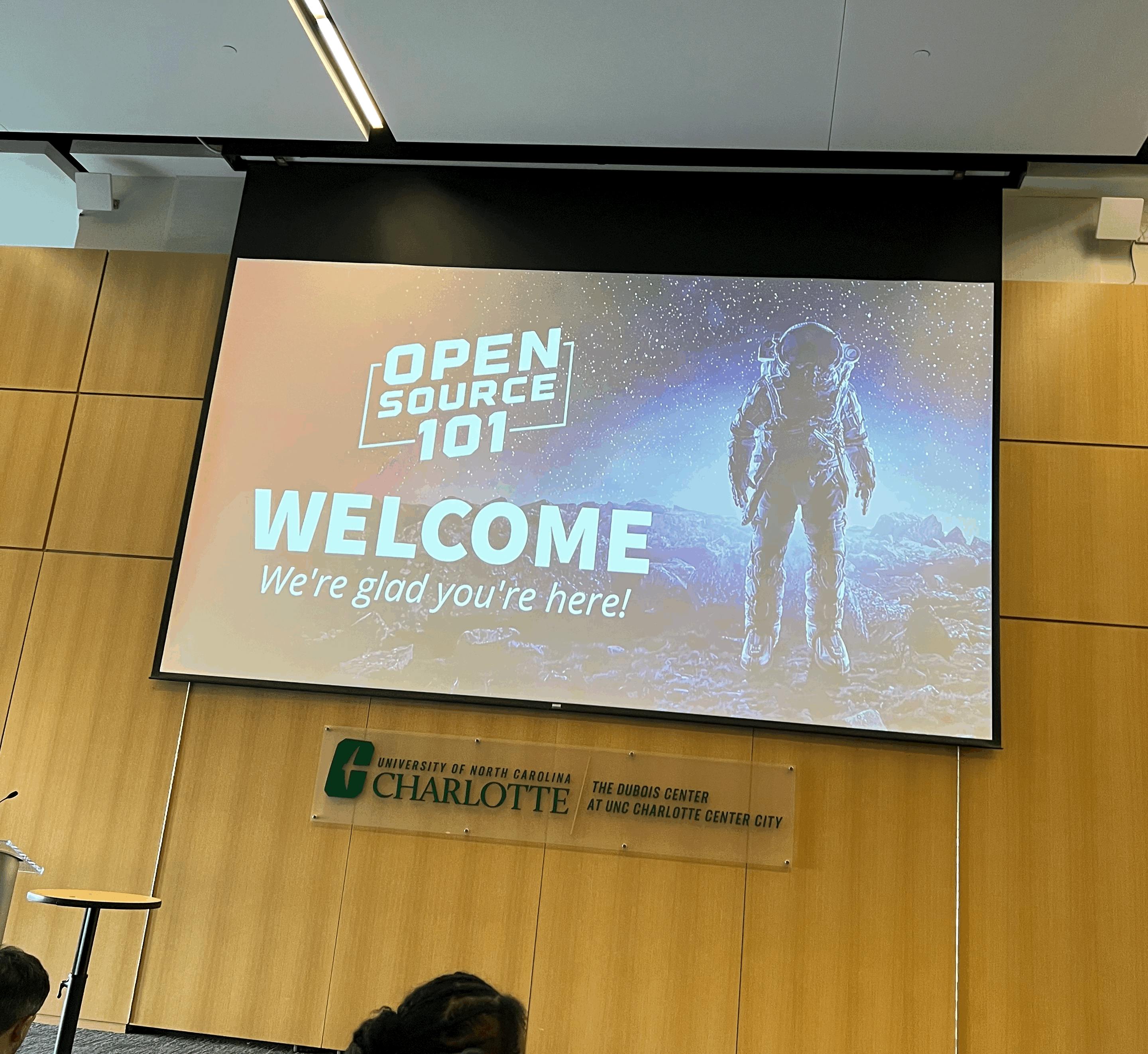
I recently had the incredible opportunity to attend the Open Source 101 conference in Charlotte, followed by a GDG meetup with the title "Let's Taco 'bout Cooking up Code in the Cloud" the next day. As someone who is passionate about technology and eager to learn about the foundational processes and tools of open source, open tech, and the open web, I was thrilled to be there and soak up all the knowledge that the seasoned professionals at the conference had to offer. The experience was truly amazing, and I left the conference feeling empowered and inspired to contribute to the open source community.
Throughout the day, I had the pleasure of attending various sessions that were not only informative but also incredibly engaging. Each of the speakers brought a unique perspective to the table, and their passion for open source was contagious. By the end of the conference, I left with a newfound appreciation for the power of open source, as well as a host of new skills and knowledge that I couldn't wait to put into practice.
So, without further ado, let me take you through my journey at the Open Source 101 conference and share with you all the amazing things I learned along the way!
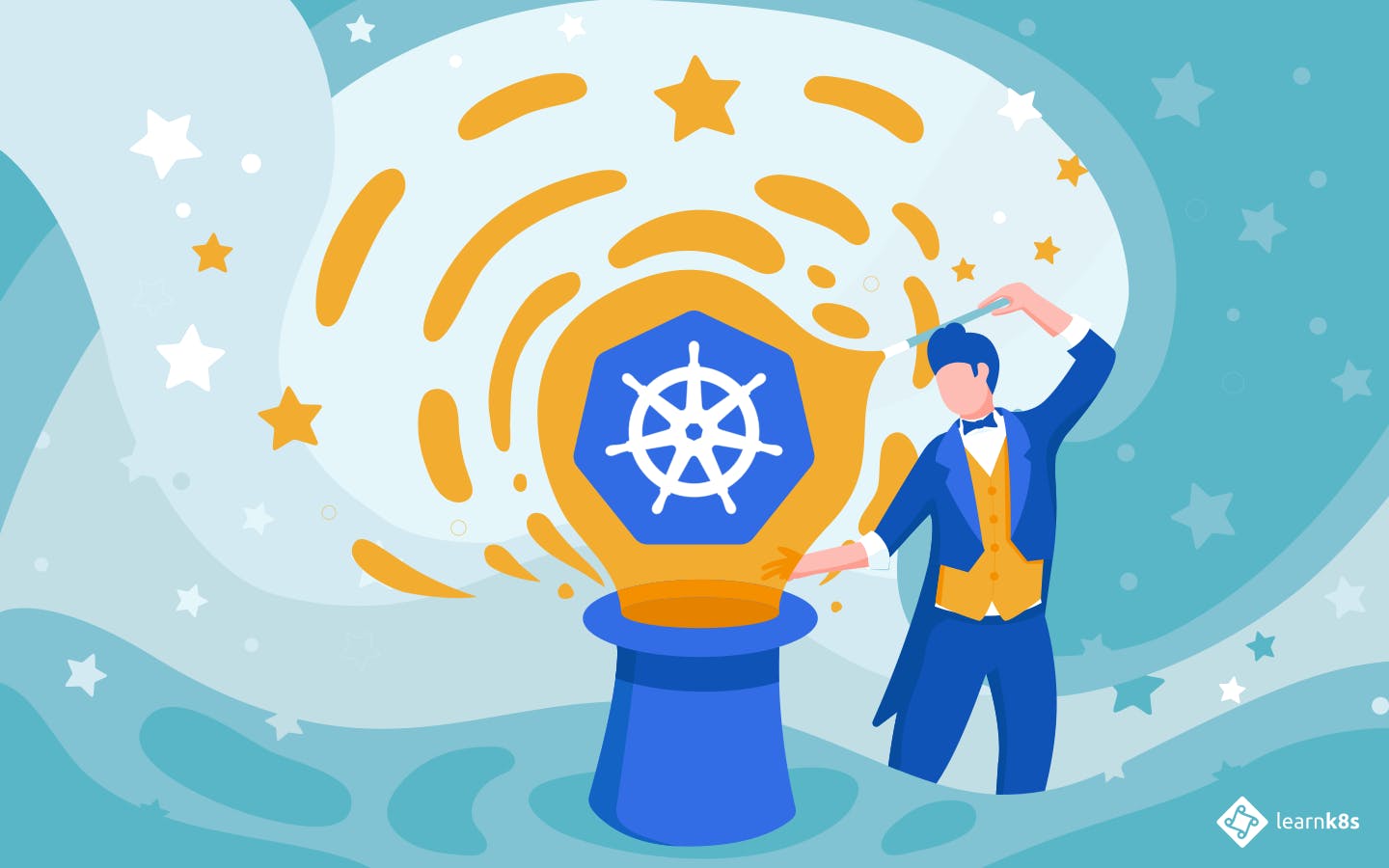
The day started off with an extended session on Introduction to Kubernetes, which was led by Brent Laster (LinkedIn), a DevOps director, trainer, and author. This talk was designed to help those who already understand containers to understand how Kubernetes can orchestrate and manage large numbers of containerized workloads. Brent was an amazing teacher, guiding us through understanding what Kubernetes is, the model it uses to manage containerized workloads, the functionality and commands it provides, and the typical workflows involved when using it. I left the session feeling empowered with a better understanding of Kubernetes and its capabilities.
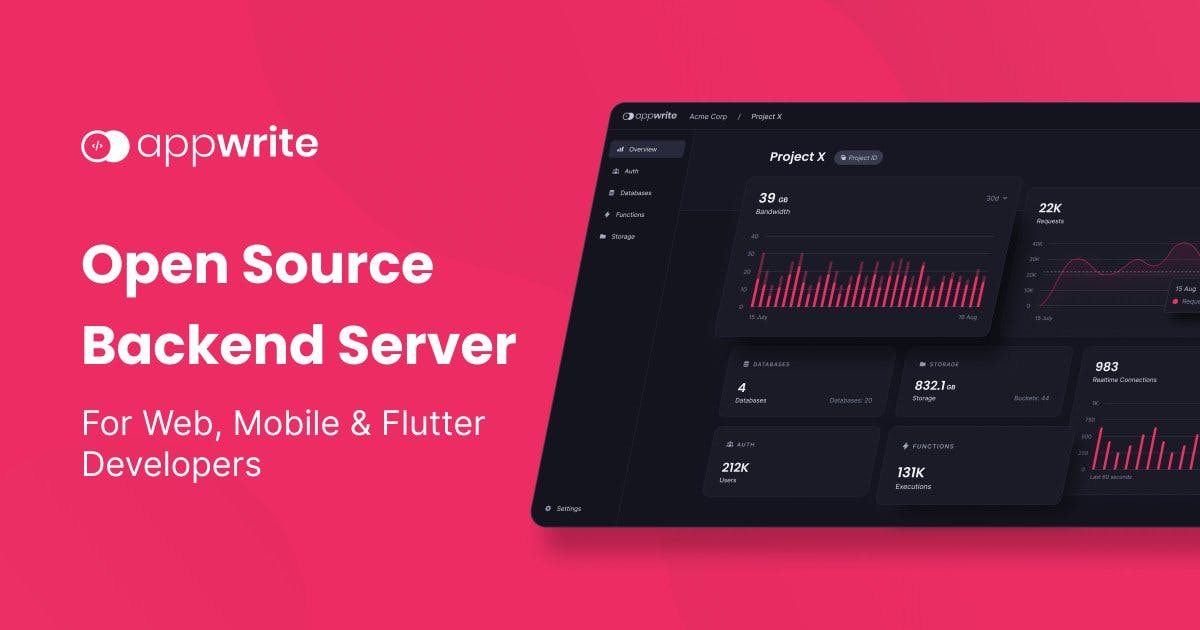
Next, I attended a session by AppWrite, a powerful open-source Backend-as-a-Service (BaaS) solution that enables developers to quickly and easily build applications. The session focused on the benefits of using an open-source BaaS to easily build apps and specifically how Appwrite can streamline the app development process. Although we missed the early part of the session, Wen Yu Ge from the AppWrite team went above and beyond to explain and showcase the platform to me and my friend. He patiently answered all of our questions and provided invaluable insights into how the platform works. What impressed us the most was his willingness to take the time to understand our specific use case and offer tailored suggestions on how we could best use AppWrite for our projects. His expertise and passion for open-source development were evident, and his willingness to help made a significant impact on our learning experience at the conference. I am grateful for his help and would like to personally thank him for his time and efforts in making us understand Appwrite.
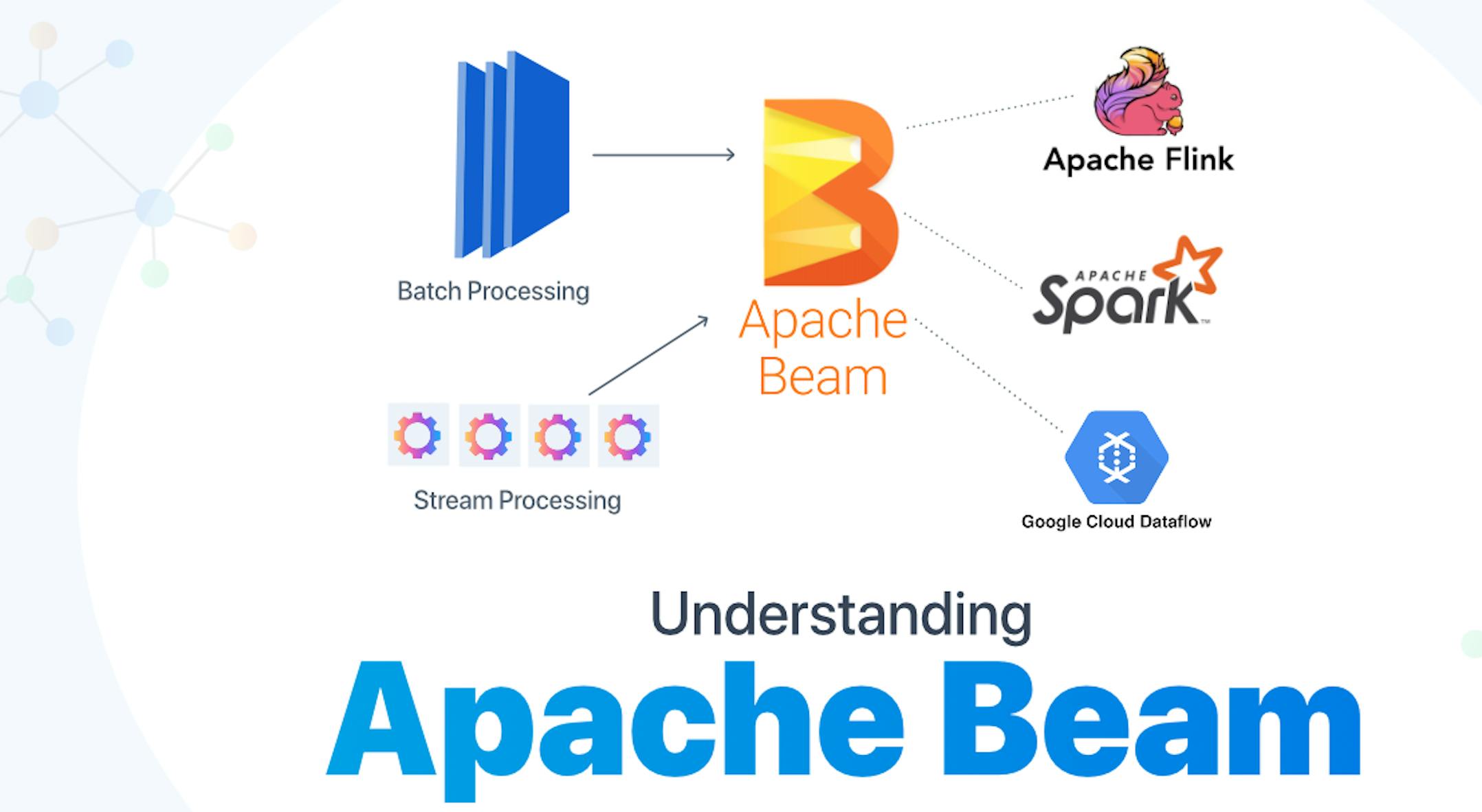
Later on, I attended a session on Machine Learning with Apache Beam led by Danny McCormick (LinkedIn), a senior software engineer at Google in Durham, NC. The session was more than informative, and I got to play with the Google collab notebooks he shared during the session. Danny did an excellent job introducing Apache Beam, and I left with a high level understanding of it and the ability to use it to easily parallelize my ML workloads.
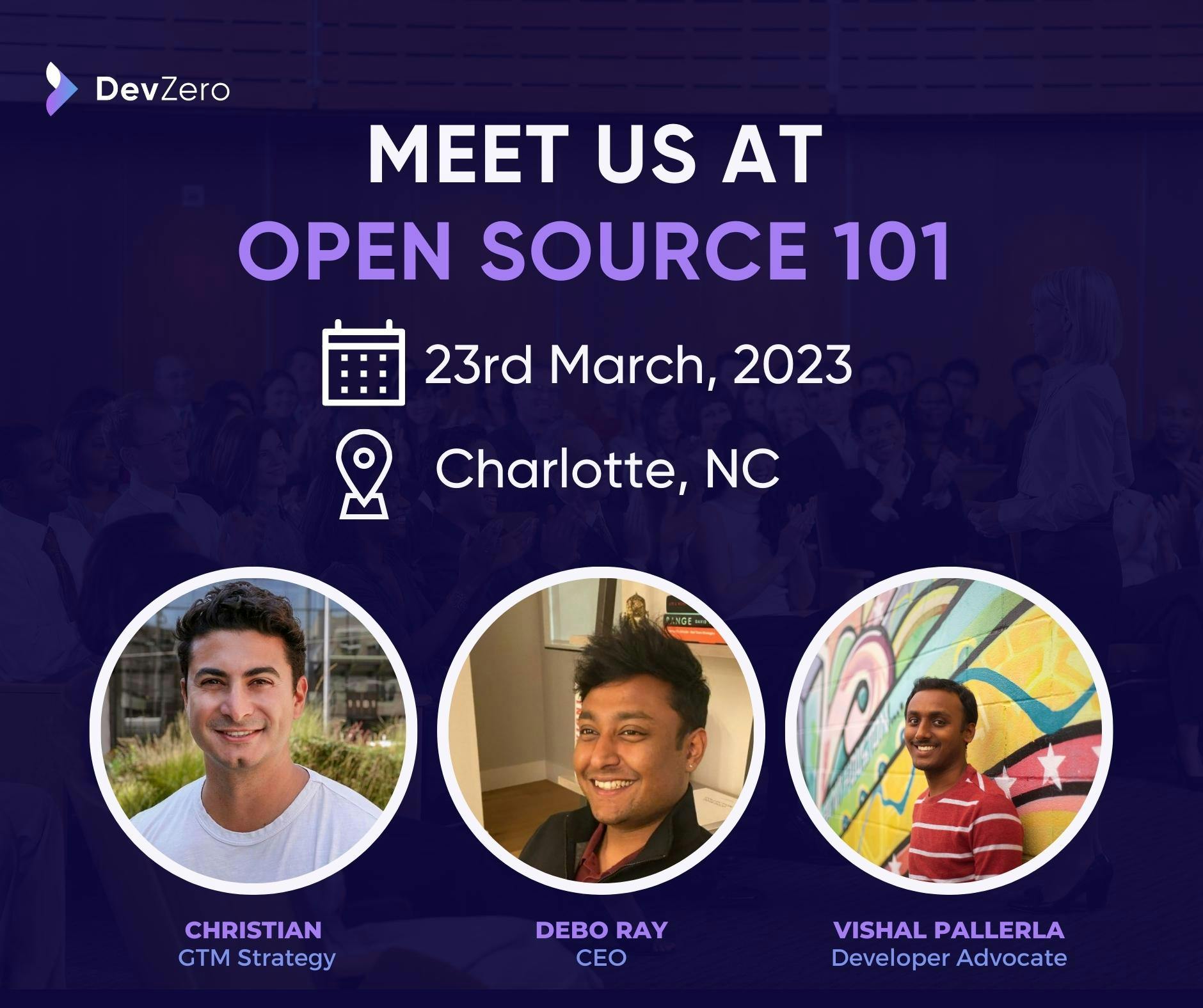
My favorite session of the day was by DevZero, titled Accelerating Your Open Source Contribution Journey with Cloud Development Environments. The session was led by Debosmit Ray (LinkedIn), the CEO of DevZero, who discussed how open source projects rely on the contributions of volunteers to thrive and grow. However, getting started with open source contributions can be intimidating, especially for those facing difficulties setting up their development environment. The session explored how cloud development environments can be leveraged to make it easy for anyone to contribute to open source projects. The practical tips and resources provided in the session left me feeling empowered and ready to contribute to open source projects using cloud development environments.

Vishal Pallerla (LinkedIn), a Developer Advocate with DevZero, also provided invaluable suggestions and guidance during the GDG meetup the following day. The meetup was creatively titled "Let's Taco 'bout Cooking up Code in the Cloud" and focused on the use cases of cloud development environments and how easy it is to use DevZero. Vishal clearly showed us the power of DevZero, and our minds were blown away by the possibilities. After the meetup, Vishal even took the time to provide invaluable guidance to me and my friends, and I can't thank him enough for his time and suggestions.
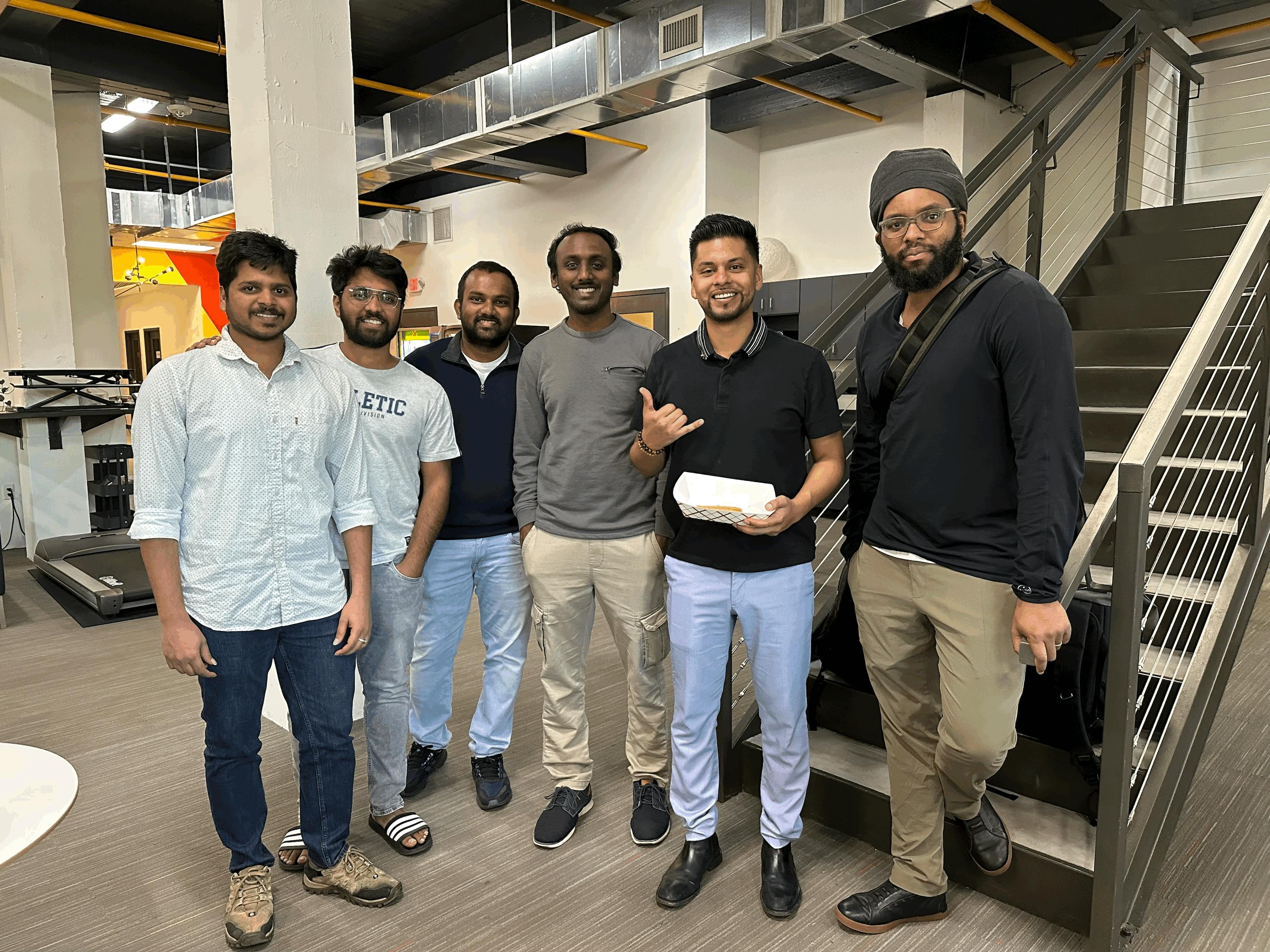
The GDG meetup was fantastic because it gave me the opportunity to meet other developers from the community, such as Ryan Edge (LinkedIn), a Google developer expert on Flutter. We had a great conversation about his experience in using Flutter, as I currently work on native iOS app development, we had an excellent discussion on the usecases and the power of Flutter, I have been trying to break into Flutter for a while now and his invaluable suggestions on courses was just amazing and I cant wait to get my hands dirty with Flutter. I am grateful for his insights and for welcoming me into the community. I also got to meet Miguel Avila (LinkedIn), who is the local organizer for the Google Developers Group. Overall, the GDG meetup was a great way to connect with other developers and learn more about the power of cloud development environments.
Lastly, I would like to express my sincere gratitude to Todd Lewis (LinkedIn), the founder of All Things Open, who organized the conference. As an international student, it can be challenging to afford such events, and Todd's generosity and willingness to provide full discounts and extra passes for me and my friends from my network, who are in similar situations, made it possible for us to attend the conference and learn so much. I cannot thank Todd enough for his kindness and support, which has made a significant impact on my education and career development. Todd's dedication to making open source education accessible and inclusive for all is truly inspiring, and I am grateful for the opportunity to be a part of this amazing community.
In conclusion, the Open Source 101 conference was a fantastic experience, and I learned so much from each of the speakers. Each session left me feeling empowered and eager to dive deeper into open source, open tech, and the open web. I am grateful for the opportunity to attend the conference and would highly recommend it to anyone who is interested in learning about the basics of open source.
